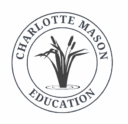Finding Community in a Charlotte Mason Education
Charlotte Mason emphasized the importance of community in education, particularly through the Parents’ National Educational Union (P.N.E.U.). She saw parents as central to the work of education and encouraged them to collaborate, share ideas, and support one another. The P.N.E.U. itself grew from such a vision—parents forming a community to learn and grow together.
True community is not something handed down from institutions but something cultivated by ordinary people in ordinary places:
“…for the village that can offer a happy community life, sustained by the people themselves, is able to hold its people.” (Towards a Philosophy of Education, Vol. 6, p. 286).
This is the heart of a rich, rooted life. There is no need to search far and wide for the perfect homeschooling group or the ideal educational support. Community can often be found right in our own neighborhoods, churches, and living rooms. A Charlotte Mason community grows when a few families come together, walk together, read the same books, and help each other through the seasons of life.
A strong local community isn’t just a support system; it’s the context in which our children grow up knowing that life is meant to be shared. Here are some steps to finding community in a Charlotte Mason education:
- Seek Out Like-Minded Parents – Education flourishes in community. Reach out to other homeschooling families, whether through personal connections, churches, or homeschool gatherings.
- Explore Established Groups – Many communities already have groups that follow Charlotte Mason’s principles. Check online to see if there are any existing groups that meet in person in your area. Ask around on AmblesideOnline’s Forum or FB group to find a local gathering.
- Form Your Own Group – The best communities often begin with just two or three families committed to meeting regularly—whether for nature walks, book discussions, or shared lessons.
A Method That Flourishes in Community
Practical Ways to Connect and Grow
Charlotte Mason’s vision comes alive when families tap into the distinct opportunities each locality offers—its parks, museums, artisans, and more—to enrich both education and community connections. By participating in activities together, families can also share costs, making these experiences more accessible and fostering a sense of collaboration. Here are some ideas to bring Mason’s vision to life:
- Gathering for nature walks
- Engaging in book discussions
- Recitations or poetry readings
- Singing folk songs or hymns together
- Recreating a scene from picture study (tableau) or performing part of a play together.
- Sharing commonplace quotes
- Practicing a new handicraft
- field trips to museums, historical sites, or other places of interest.
Charlotte Mason viewed the family as “the unit of the nation,” believing that strong homes naturally extend outward into strong communities. Welcoming whole families—through father-friendly hikes or grandparent storytelling sessions—fosters intergenerational bonds. A key feature of the early P.N.E.U. was parents educating themselves alongside their children, and engaging in discussions about Mason’s philosophy and its application can deepen the journey for everyone.
Mason also saw education as a means to shape character. Service projects, group handicrafts, and local outreach provide meaningful ways for children to contribute and grow. While large-scale efforts like conferences can be valuable, small, consistent gatherings often yield the most fruit. Encouraging shared leadership—where different parents take responsibility for various aspects—keeps efforts sustainable and prevents burnout.
When You Can’t Find or Create a Local Community
- Online Community – Engaging in discussions through online groups can provide encouragement, insight, and support.
- Traveling to Events – Conferences, retreats, and regional gatherings offer opportunities to build relationships in person.
- Starting Small – Even a single like-minded friend can be the foundation of something meaningful.
Resources
- Charlotte Mason in Community – Find a local CM group
- AmblesideOnline Forum – Join discussions and find groups
- AmblesideOnline Facebook Group – Connect with CM educators worldwide
- Local Facebook Groups – Search for “Charlotte Mason” along with your city or region
- Podcasts – Listen to discussions on CM’s methods and ideas:
When Community Takes Over
Be intentional about the commitments you make to community. Organizing book groups, coordinating events, and managing communications can gradually demand more time and energy than anticipated. While community is enriching, it should support rather than compete with your primary goal of providing a life-giving education for your children. Setting clear boundaries from the start can help ensure that community remains a blessing rather than a burden.
